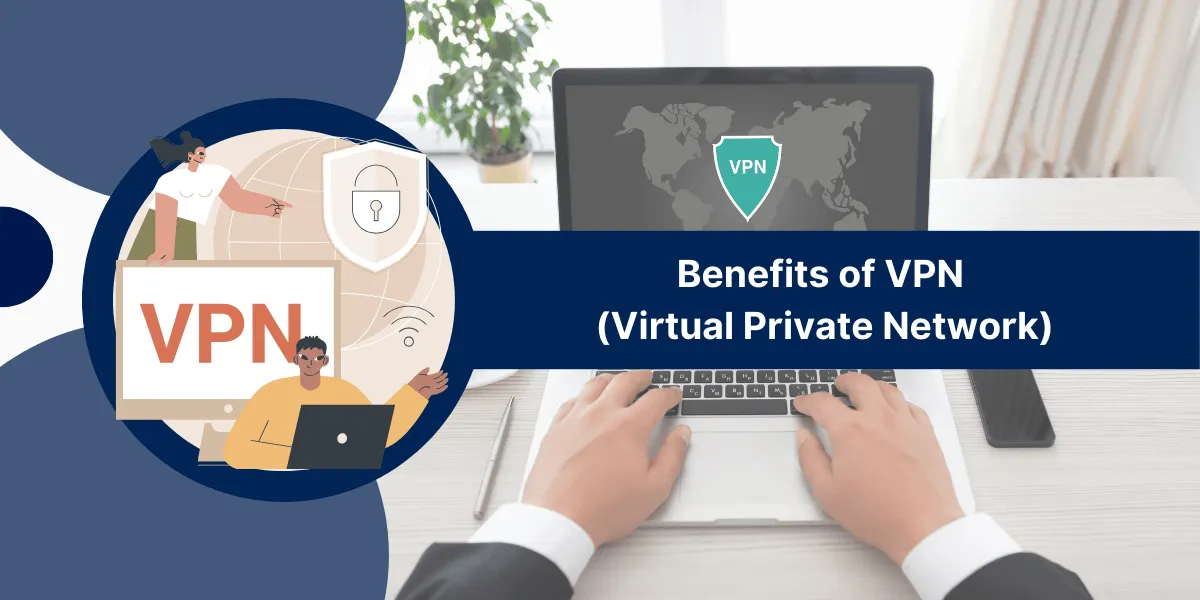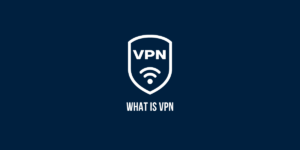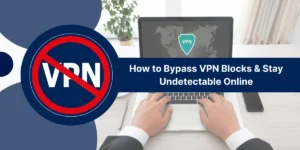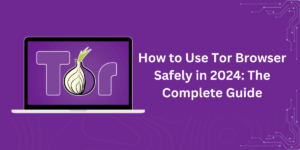A Basic Overview of VPN
A VPN, or Virtual Private Network, is a secure and encrypted connection between your device and the internet. It creates a private tunnel, hiding your online activity and IP address from prying eyes. The main benefits of using a VPN include enhanced privacy, improved security, access to geo-restricted content, and the ability to bypass censorship.
By routing your internet traffic through a remote server, a VPN protects your sensitive data and allows you to browse the web anonymously. Setting up and using a VPN is a simple way to boost your online safety and freedom.
Key Takeaways
- VPNs enhance online privacy and security by encrypting internet traffic and hiding IP addresses. This prevents snooping and hacking.
- VPNs allow access to restricted content and websites by changing the user's virtual location. This helps bypass geographic restrictions.
- VPNs prevent throttling and blocking by ISPs. This results in faster speeds when using bandwidth-intensive applications.
- VPNs provide secure remote access for employees to company networks and resources when working remotely.
- VPNs secure public Wi-Fi connections in airports, hotels, coffee shops, etc. This prevents man-in-the-middle attacks.
- The top benefits of VPN include online anonymity, data security, access to blocked content, bypass of censorship, and internet throttling.
5 Major Benefits of VPN (Virtual Private Network)
- Enhanced Online Privacy and Anonymity
- Secure Web Browsing and Online Transactions
- Bypassing Geographic Restrictions
- Prevent Throttling and Reduced Internet Speeds
- Remote Access for Employees
1. Enhanced Online Privacy and Anonymity
One of the main reasons people use a VPN is to protect their online privacy. VPN services allow users to browse the Internet anonymously by masking their real IP address and replacing it with one leased from the VPN provider.
Without a VPN, your ISP can easily monitor all your online activities and even sell this data to advertisers and other third parties. A VPN prevents the ISP from logging the websites you visit and creates space for anonymous internet access.
VPNs route the user's internet traffic through an encrypted tunnel before exiting onto the public Internet. This prevents the ISP from monitoring or recording the user's browsing data. The VPN assigns a new virtual IP address each time the user connects to their service.
The user's real IP address and location are hidden. This makes it much more difficult for websites, advertisers, and other third parties to track online activities or create user profiles for targeted advertising.
Using a public Wi-Fi network is highly risky without a VPN. Other users on the same network can easily intercept transmitted data and steal login credentials, financial information, and other sensitive data. A VPN encrypts all network traffic and prevents MITM (man-in-the-middle) attacks on public Wi-Fi.
Many people also use VPNs to access blocked websites and services anonymously without being identified. In regions with strict internet censorship, a VPN can help citizens bypass government restrictions imposed on access to certain sites and online content.
2. Secure Web Browsing and Online Transactions
VPNs are essential for securing sensitive online transactions, such as banking, shopping, insurance policy management, etc., against hacking and identity theft. VPN encryption prevents cybercriminals from gaining access to personal and financial data as it travels across the web.
Public Wi-Fi networks in airports, hotels, cafes, and other locations are notoriously easy for hackers to penetrate. Connecting to the Internet using these hotspots without a VPN is strongly inadvisable. Encrypting traffic with a VPN ensures nobody can intercept transmitted data or passwords when using any untrusted connection.
Government agencies and ISPs that have deep packet inspection capabilities can very easily extract personal information like usernames, passwords, credit card numbers, etc., from internet traffic. A VPN adds an extra layer of security through encryption that prevents this by limiting what the ISP can see.
VPNs also protect against DNS leakage and IPv6 leaks, which could potentially expose the user's real IP address and location. VPN services include firewall protections to prevent such leaks, ensuring that all internet traffic is anonymous for maximum privacy.
Utilizing a VPN secures online activities not just on laptops and smartphones but also on internet-connected home devices. Internet of Things (IoT) devices like smart TVs, digital assistants, Wi-Fi cameras, etc., can compromise user privacy. Connecting them through a VPN adds an extra layer of security.
3. Bypassing Geographic Restrictions
VPNs allow internet users to bypass location-based restrictions imposed on online content. Streaming platforms like US Netflix, Hulu, BBC iPlayer, etc., have geo-restrictions that limit content availability based on the user's geographical location.
By connecting through a VPN server located in a different country, users can easily access international content catalogs on such services. This technique allows expats and travelers abroad to view content from their home country as well.
Many news and media websites also impose geographic restrictions on online content. Changing one's virtual location using a VPN helps access this blocked content from anywhere in the world, which is very useful, especially when traveling internationally.
Government censorship of internet access in some countries can also be bypassed using a VPN. The Great Firewall in China notoriously blocks access to websites like Facebook, Twitter, Google, and various foreign news outlets. Citizens use VPNs to circumvent these barriers.
By selecting a VPN server near the game server location, gamers can lower ping times and latency issues when playing on international servers. This gives them a competitive edge against players in other regions.
4. Prevent Throttling and Reduced Internet Speeds
ISPs often throttle bandwidth-intensive online activities like streaming HD video and downloading large files through torrent clients. This results in very slow internet speeds. VPN encryption prevents ISPs from recognizing the type of traffic and selecting it for throttling.
Without a VPN, an ISP can easily figure out when a user is streaming movies or gaming online and deliberately slow down the connection speed. This forces users to upgrade to more expensive packages for faster Internet. A VPN secures your connection against such throttling practices.
In regions with internet censorship and restrictions, governments actively throttle access to banned websites and online services. A VPN masks internet traffic, making it impossible for authorities to identify and slow down access to particular sites or web-based services.
Gamers in many countries suffer from ISPs' intentional throttling of online games. Using a VPN often improves ping, reduces lag, and offers a much smoother online gaming experience. The encryption prevents ISPs from throttling gaming servers.
5. Remote Access for Employees
Many companies use VPN solutions to provide employees with secure remote access to internal company networks and resources. This allows staff to work productively when traveling or based out of home offices.
Client VPN software creates an encrypted tunnel from the employee's device to the corporate network. Remote desktop access allows users to use company apps, tools, files, and databases securely over the Internet.
VPNs enable secure collaboration between employees in different locations through a shared virtual network. Sensitive business data can be transmitted safely without the risk of interception by cybercriminals.
IT teams also segment the corporate network to control remote employee access to only specific sections or resources for enhanced security. Access permissions are configurable to prevent unauthorized access.
Multi-factor authentication is used along with VPNs to add an extra layer of protection for remote access. One-time passwords and biometrics like fingerprint scans prevent unauthorized logins even if the VPN credentials are compromised.
VPN Use Cases & Scenarios
Let us look at some important use cases and scenarios where using a VPN provides immense value and benefits:
- Secure Public Wi-Fi Access
- Bypass Internet Censorship
- Online Anonymity
- Protect Sensitive Transactions
- Stream Blocked Content
- Remote Access to Company Network
- Reduce Gaming Latency
- Bypass Corporate Firewall
Secure Public Wi-Fi Access
Public Wi-Fi networks at airports, coffee shops, hotels, etc., are prone to hacking via techniques like DNS spoofing and man-in-the-middle attacks. A VPN must be used to prevent criminals from stealing passwords, financial information, and other sensitive data transmitted over such hotspots.
Bypass Internet Censorship
In countries with repressive internet controls and censorship, VPNs allow citizens to access banned websites and online services. VPN traffic appears anonymous and, unlike unprotected connections, cannot be selectively blocked.
Online Anonymity
To prevent ISPs, government agencies, and websites from tracking user activities, a VPN hides the real IP address and physical location. This allows truly anonymous internet access without creating permanent user profiles.
Protect Sensitive Transactions
VPNs prevent cybercriminals from gaining access to sensitive information such as credit card details, bank account credentials, etc., during online purchases, money transfers, and other financial transactions.
Stream Blocked Content
Access streaming services like US Netflix, Hulu, BBC iPlayer, etc., and bypass geographic restrictions imposed on media content based on location. A VPN unblocks worldwide content.
Remote Access to Company Network
Many companies issue VPN software to employees to allow telecommuters remote, secure access to internal apps, databases, files, and other business-critical resources.
Reduce Gaming Latency
Gamers use VPNs to overcome ISP throttling of games and significantly improve ping times by connecting to gaming servers through VPN endpoints located closer to the game data centers.
Bypass Corporate Firewall
Within office networks, employees can use a personal VPN service to bypass firewall policies that may block access to certain websites and online services, such as social media.
What Features to Look for in a VPN Service
There are many VPN service providers available today, both free and paid. However, the quality and features offered can vary greatly between platforms. Here are some key criteria to evaluate when choosing a VPN for optimal online security and privacy:
- Server Locations: Look for services with a large number of worldwide locations so you can choose servers closest to your physical location for the best speeds.
- Data Encryption: AES-256-bit encryption is currently the gold standard for securing internet traffic and preventing the hacking of sensitive data.
- No Data Logging: Choose a provider that follows a strict no logs policy for maximum anonymity without keeping user activity records or timestamps.
- Multiple Device Support - Services that allow securing numerous devices - PCs, Macs, smartphones, tablets, routers, etc.- under a single plan offer the best value.
- Fast Server Speeds: Pick a service with consistently fast VPN servers that offer sufficient bandwidth without speed throttling to support HD streaming and downloads.
- Reliable Customer Support: VPN services with 24x7 live chat and email support provide helpful troubleshooting when connection issues arise.
- Kill Switch Feature: A security feature that disables internet access if the VPN connection drops unexpectedly, preventing exposure of real IP addresses.
- Split Tunnelling: This allows specifying particular apps that always bypass the VPN while routing other traffic securely through the encrypted tunnel.
- Strict No Leaks Policy: To prevent accidental exposure of your real IP address from DNS, IPv6, or other leaks, use a VPN that offers leak prevention tools.
Final Thoughts
VPNs or virtual private networks deliver vital benefits like privacy protection, data security, access to geo-blocked content, and circumvention of internet throttling. As online privacy risks continue to grow, utilization of trusted VPN services has become essential for secure web access on any device and network.
With data breaches and cybercrime increasing globally, a quality VPN provider offers encryption to keep internet users, their activities, and information safe from prying eyes as well as hackers. However, it is important to choose a reputable service that follows best practices and offers leak protection for true anonymity online without compromising on speed or reliability.

Jinu Arjun
 Verified Web Security Experts
Verified Web Security Experts
Jinu Arjun is an accomplished content writer with over 8+ years of experience in the industry. She currently works as a Content Writer at EncryptInsights.com, where she specializes in crafting engaging and informative content across a wide range of verticals, including Web Security, VPN, Cyber Security, and Technology.



